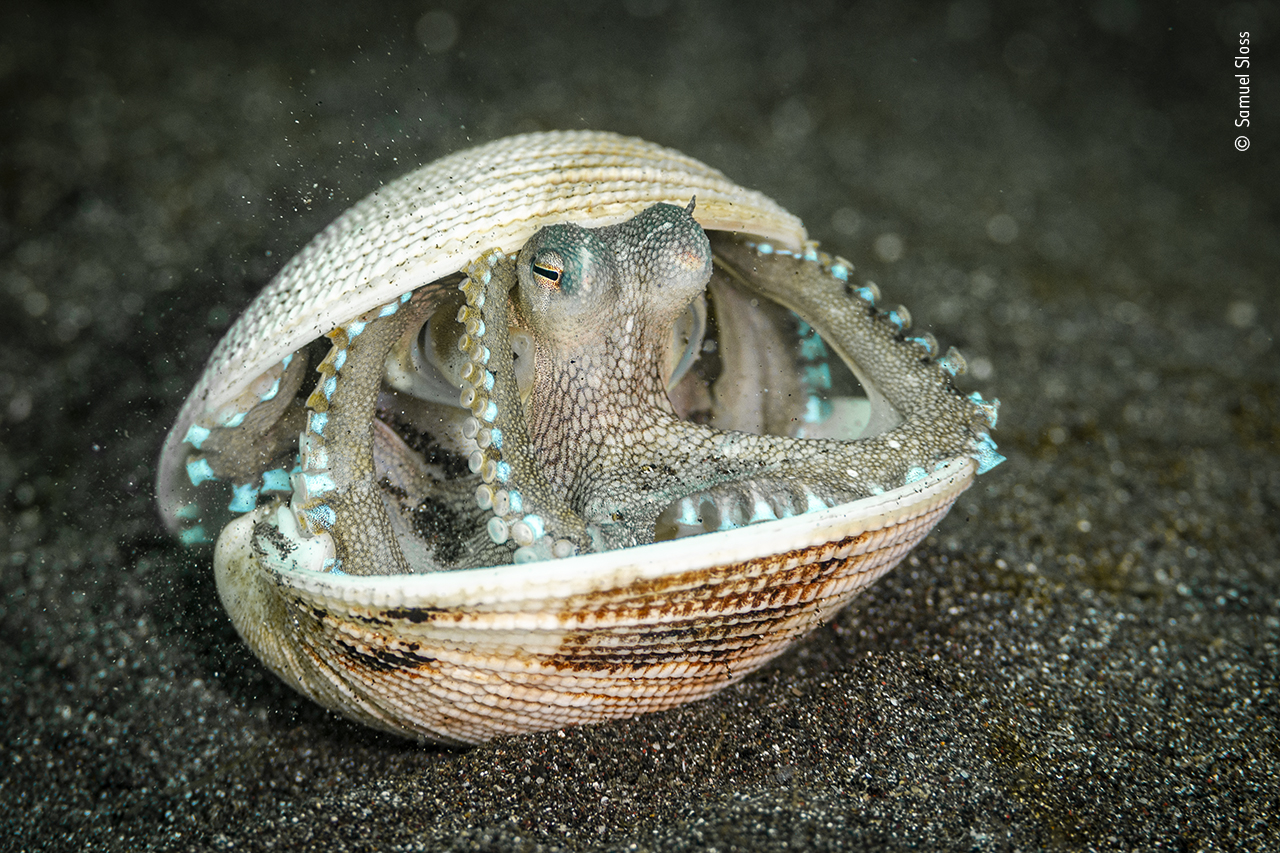Visit the exhibition
Discover the incredible stories of life on our planet through powerful photography and expert insight.
Tickets on sale now.

Samuel Sloss (Italy/USA) is spotted by a coconut octopus, peeking out from a clam shell.
Samuel was muck diving along the volcanic sands of Lembeh Strait, Indonesia, when he noticed this coconut octopus. He lowered the power of his strobe lamp so as not to distress it. As he approached, the octopus quickly shut the lid of the shell, but then, to Samuel's delight, it slowly opened it again, revealing a stunning array of colours and coils.
This small octopus feeds mainly on shrimps, crabs, clams and small fish. Whilst hunting for its prey amongst the sand or mud of the seafloor, it's vulnerable to attack by predators. To protect its soft body, it employs a sophisticated defence strategy - finding, cleaning and carrying shells or other suitably sized objects to hide in.
In some cases, these octopuses have even been known to use coconut shells. Carrying such big objects requires most of their tentacles, and so they travel by 'walking' on just their front two tentacles. This behaviour demonstrates not only dexterity but intelligence and a capacity to anticipate and plan.
Discover the incredible stories of life on our planet through powerful photography and expert insight.
Tickets on sale now.

Italy/USA
Sam, whose parents have long worked in the diving industry, became a certified diver on his tenth birthday. During his first year of diving he worked on buoyancy and read up on animal behaviour. A year later, his parents taught him to take underwater photos. Sam loves showing people the beauty of the underwater world and in doing so hopes to raise awareness and save its fragile ecosystem.
Help us harness the power of photography to advance scientific knowledge, spread awareness of important issues and nurture a global love for nature.